
12 minute read
Eco Heroes
picked over by environmental charities. Despite having shelved plans to rebrand as ‘Beyond Petroleum’, BP is making significant investments in pre-profit renewables businesses which have made investors nervous. Shell’s recent stated intention to grow its gas business by 20% flies in the face of their net zero commitments, and plans to offset that gas using ‘nature based solutions’ may leave one wondering whether there is enough nature left to go round. This brings us back to the harsh taskmaster of GDP and those shareholders demanding their quarterly results. As an oil company, it’s challenging to ride the twin horses of shareholder returns and carbon reduction. It’s easier to find utility company success stories. Francesco Starace, CEO of Enel, transformed a traditional electric utility into a renewable energy giant and began learning how sustainability can drive profit early in his career. Many of the most inspiring sustainability CEOs have personal stories of nirvana moments.
Some solutions are obvious once they are pointed out. In the crisp manufacturing supply chain, potato growers previously used energy to hydrate potatoes to increase purchase prices, then the crisp manufacturer would use more energy to dehydrate them before making crisps. Removing the energy-intensive hydration and dehydration was in everyone’s interest. Solutions aren’t always an easy road. One drinks company, ethically committed to sustainability, realised that customer carbon footprints would be far lower if customers simply bought – or even better grew – fruit and blended it to drink. Their alternative was fruit being transported, blended, packaged, transported some more and refrigerated to create a product, which they eventually declined to label with a carbon footprint.
Advertisement
Be the change
If you don’t fancy trying to sign global agreements or lead an innovative sustainability company, you can still have an impact on the climate. And there are many tools out there to give you ideas on how. Both Friends of the Earth and the Grantham Institute have come up with nine things you can do about climate change – the BBC has ten. My hunch is there may be even more. The WWF has an excellent carbon footprint calculator. Informing ourselves on what we can do personally empowers us. Rather than jetting off for the next planet with Musk and Branson, how much more rewarding would it be to see the one we live on thrive?
© Photo by Etienne Girardet on Unsplash.

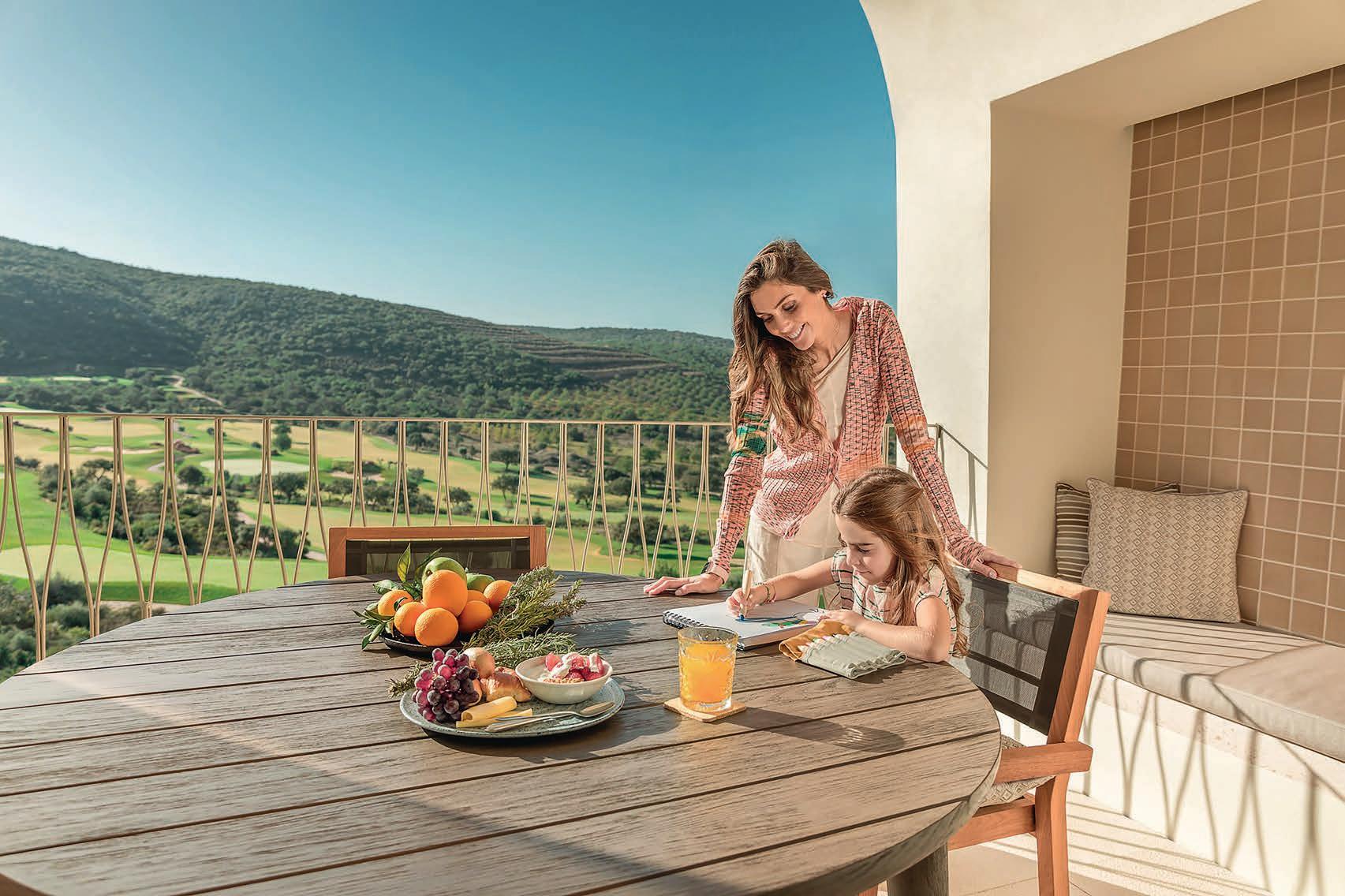
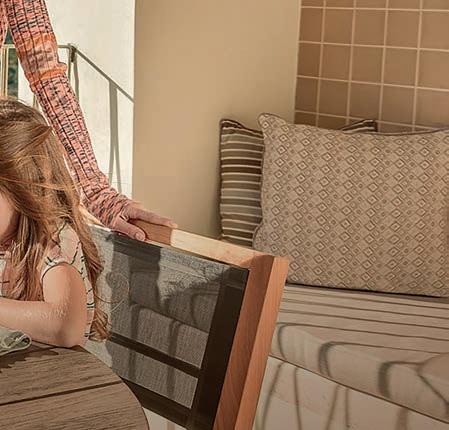

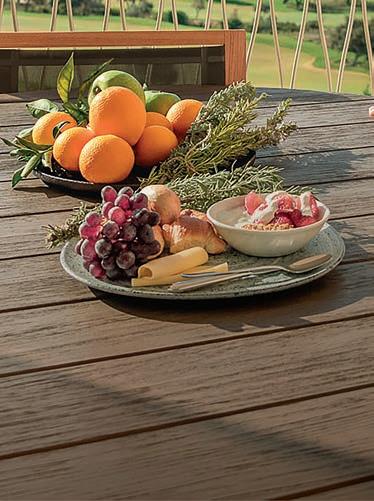
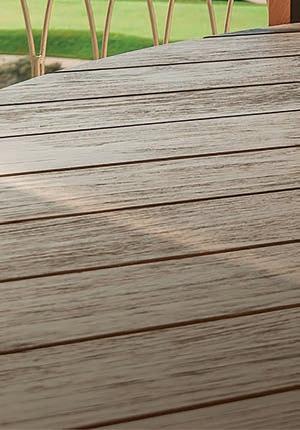
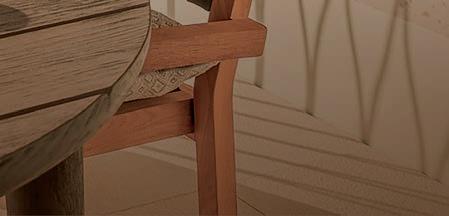
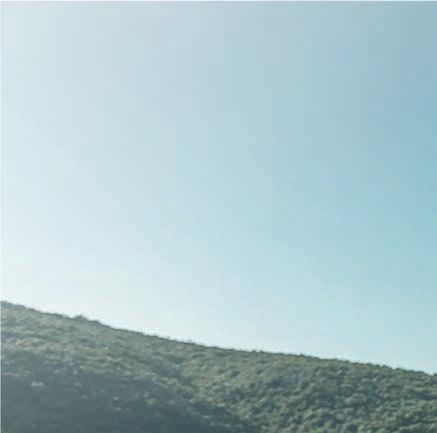
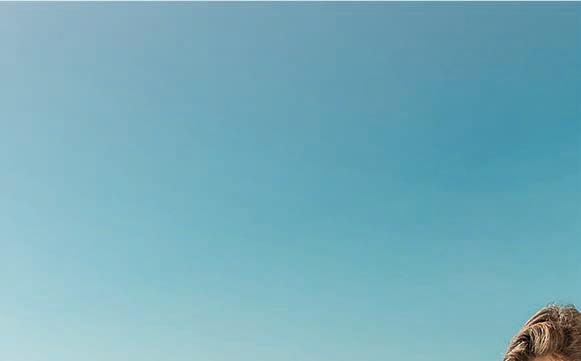

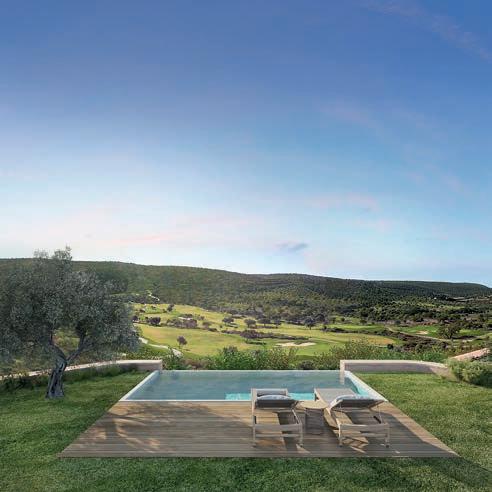
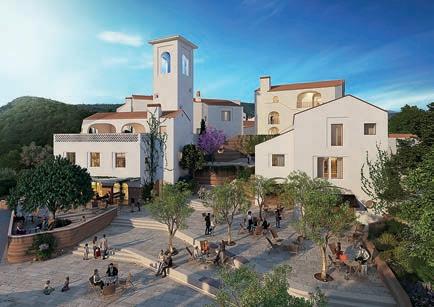
Shark
Madison Stewart highlights the plight of sharks as a result of finning and over-fishing, thanks to Project Hiu. Girl
Was it a childhood dream to become an environmental activist and shark conservationist? It’s not the most obvious choice! What inspired you to follow this path?
I love this question.... No! It certainly was not my dream. I grew up loving sharks and the ocean and I knew my future would involve them somehow, but my move from enjoying the natural world to fighting for it came from necessity, not desire. At a young age I began to witness a change to the ecosystems I grew up diving in; this fuelled my desire to do something about it, it shaped my life in conservation.
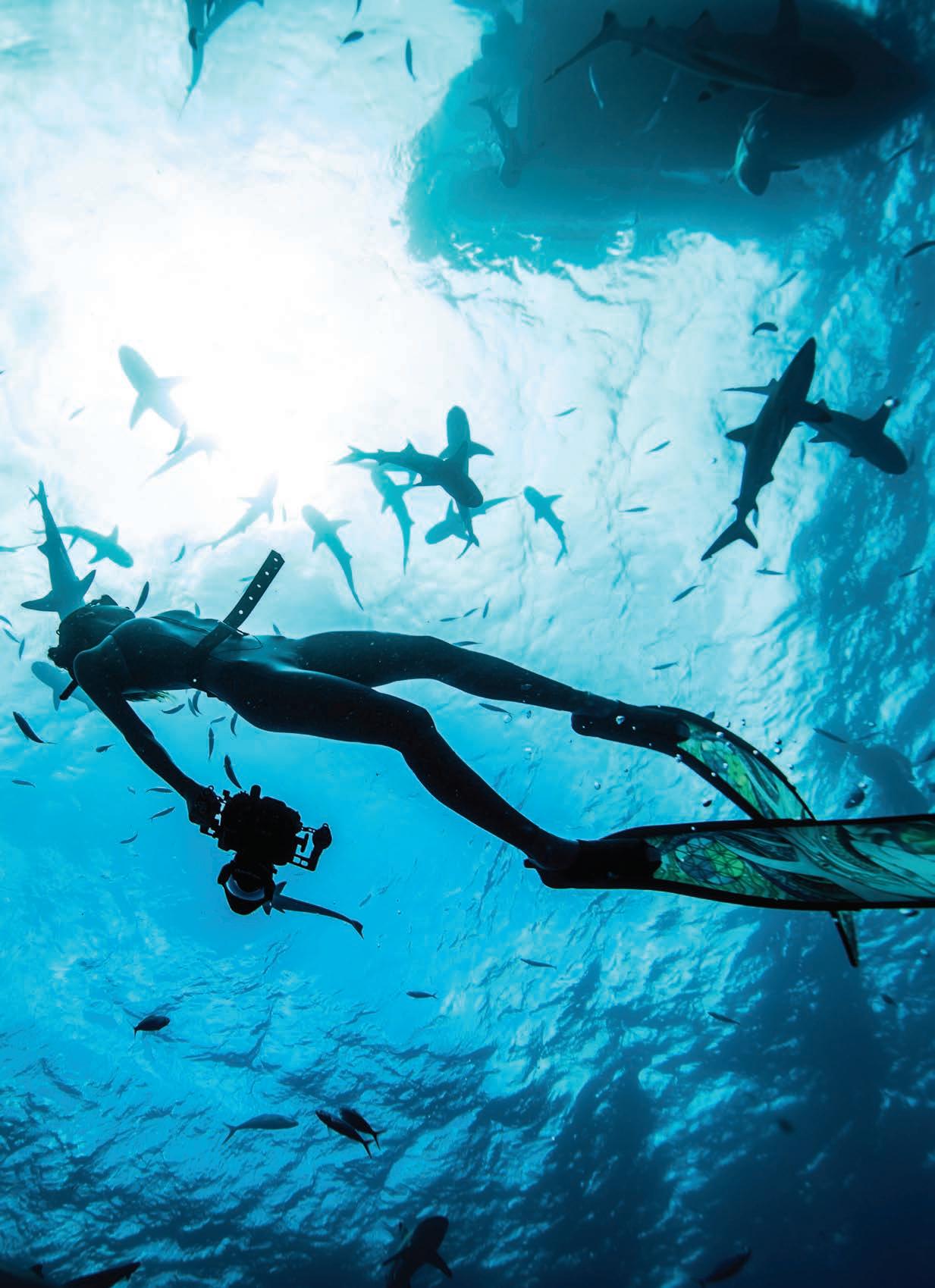
Do you bond with the sharks you dive with?
Sharks are not social creatures, I’m sure there are conservationists out there that would like to paint them in the same light that we do cetaceans (whale, dolphin, or porpoise), but the truth is we cannot bond with them or form connections.
I was so young when I began to see the impacts of overfishing, in a place I thought would always remain a sanctuary.
However, that’s something I love about them – the only thing a shark will judge you on, is how well of an apex predator you can be around them. They judge you on how well you can survive in the water with them, it’s a pure form of acceptance and humility that one can only get around a shark.
What would you say to those who tell you sharks aren’t a priority on the wildlife ‘must be saved’ list?
Those who do not understand the plight of the shark do not understand the ocean itself. They are an instrumental – if not one of the most instrumental – species in the oceans. Sharks are keystone species and contribute to the health of entire marine ecosystems. They are an important species to have in healthy numbers in the ocean. They have also been a part of our oceans for 400 million years.
Any life changing moments?
The turning point for me was a single night dive on the Great Barrier Reef when I was 14 years old. It was a place I had always seen sharks before but it was empty. I will never forget how I felt on that dive, or the fear and desperation I had to want to do something about it.
How does one devote one’s life to conservation?
For me the natural path was storytelling through film and then using my ability to connect with the fishermen to do something different. The beautiful thing about conservation is the fact that it’s different for everyone and it is something that will truly only work when coming from the heart.
How did Project Hiu come along?
I found myself in Indonesia with a film crew to document the famous shark market where sharks are killed for their fins. The fishermen revealed that largely as a result of the global shark trade, the ocean was changing in a dramatic way. Not long ago, sharks averaged less than two percent of the total catch, but by the 21st century, Indonesia was the world’s leading shark producer. Their fins became the prize, their status and the laws protecting them became insignificant hurdles, and their decline imminent. When I visited there were maybe 80 sharks, and some of them bigger than any shark I’ve ever seen in the wild, some species I’d only seen in books. I began to think of how I could create change as an individual. It wasn’t until a year later that I would return. I had originally travelled to this market to expose the shark trade and the men at its heart but I went back, to offer those men an alternative. Project Hiu (Hiu means shark in Indonesian) is an initiative which aims to provide alternative income to fishermen in one of the largest shark fisheries in the world. By hiring the shark fishing boats and the locals that man them, we sought to engage them in a very different role: tourism. A natural, alternative income that simultaneously and effectively protects sharks. Project Hiu is founded on the recognition that the very solution to saving sharks lay with the men raised to kill them.
Shark fishermen are the villains of most stories, but the heroes in ours. These men deserve an income free from the threat of prosecution, and the many dangers they face spending weeks away from their families. The goal of Project Hiu is to improve conditions above and below the surface, and enforce the idea that one person, and one shark fisherman, can make a difference.

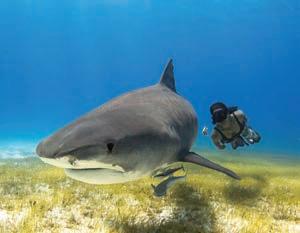
Any words of wisdom for others who want to raise awareness and work in conservation?
I think the best thing for people to know and realise is that they are capable of having an impact, no matter where they are or what they are doing. Shark meat and products that contain sharks are in our everyday life and a major first step to take is to avoid using them. You can learn more about that here: thehoopercollective.org/how-to-help
So, where is home now?
I was in the process of moving to Indonesia when the travel difficulties associated with covid lockdowns made this difficult. I now have no home, spending lots of time in the USA, Indonesia and Australia when I can, but my work keeps me busy. I get flown to different parts of the world to do one of two things: dive with live sharks, or document the trades killing them. It keeps life interesting. Find out more at projecthiu.com and follow
madison@projecthiu
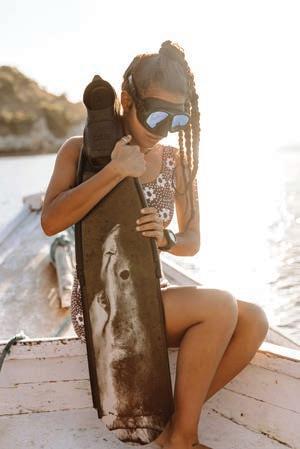
Trash The Traveler
Andreas Noe is an environmentalist and a force for good who took matters into his own hands.
How was The Trash Traveler born, and what were his initial goals?
To be honest, I was becoming increasingly shocked by the amount of plastic in our daily lives, in our supermarkets, on our beaches and in our oceans. I simply had to do something!
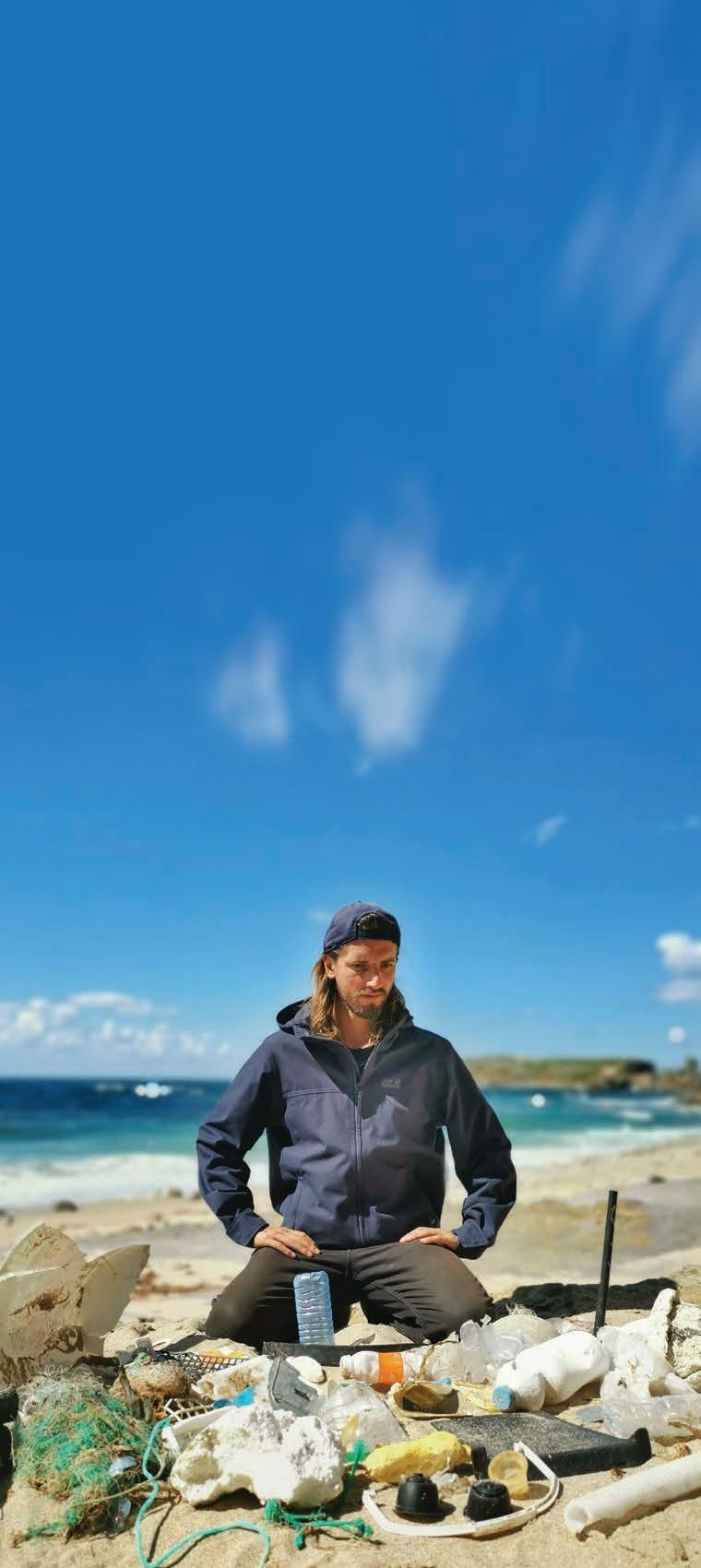
I arrived in Lisbon in 2017, initially working in a laboratory as a molecular biologist and medical consultant. In my free time, I would hit the beach to surf and enjoy nature, which is where the shocking reality hit me. Plastic everywhere. So I quit my job and started The Trash Traveler as I wanted to take action by positively raising awareness in extraordinary ways to gain attention. My goal is to not just ‘clean’, more to highlight the plastic pollution issue and inspire people to make sustainable choices and to rethink our disposable lifestyles. I believe this will contribute to a growing mindshift in the population which applies pressure on companies and governments to invest in a circular economy, therefore shifting away from the single-use mindset.
Originally from Germany, you seem to have a deep affinity with Portugal. How has that evolved?
In 2020, I hiked every single metre of the Portuguese coastline (1,132km) in 58 days without a day off! ‘The Plastic Hike’ project was to show in a crazy way, that you can hike the entire coastline with only one refillable water bottle. Over 500 people, including NGO’s and environmentalists, came to participate with me, which was incredible.
This community project resulted in an art exhibition and a documentary movie. Seeing the amount of people who care in Portugal made me stay.
So I decided to create one big adventure each year, and to follow that, I completed ‘The Butt Hike’ in 2021 and collected 1.1 million cigarette butts! Not everyone understands that cigarettes contain harmful plastics, so from an awareness perspective, it helps people to realise that not all plastics are obvious.
So what can we expect from The Trash Traveler in 2022?
I am putting the finishing touches to my plans for another big nationwide adventure this year. It’s an awareness project that not only connects the coastline communities but I’m also venturing inland. I’m excited to get started, so keep an eye on my social channels for updates – and follow my journey. My aim is to get as many people involved as possible, from schools and universities to businesses and other organisations… and of course the great general public.
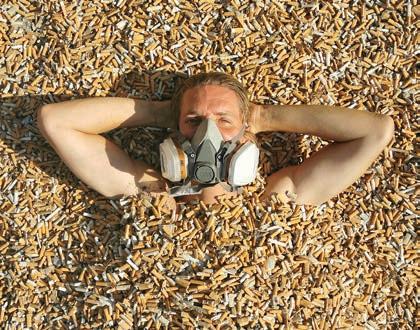
Follow the Trash Traveler theplastichike.org or @thetrashtraveler
The Marine Biologist
Joana Castro founded AIMM Portugal, a non profit NGO for marine research and conservation.
Joana and her team of biologists are passionate about the ocean and deliver programmes to students, tour companies and the general public to highlight the importance of living in harmony with sea life along the Algarve coastline.
Behind the scenes, AIMM studies the biology, ecology and conservation of the whale and dolphin population and in doing so the team witnesses firsthand the impact human activity has on local wildlife.
As the Algarve is an immensely popular tourism destination, Joana addressed the need to focus on the ethics of the rapidly-growing whale and dolphin watching sector. AIMM works with boat companies, mentoring them to adopt ethical practices. These partnerships cultivate a deep understanding of marine-life and through this, tour companies operate with the least possible impact on the local environment.
What’s next for AIMM?
We’ve set ourselves big goals this year. We’d love to invest in a new, larger vessel so we can grow, and recruit even more students. Over the past decade we’ve nurtured a variety of enthusiastic interns ranging from 14 to 60 years of age. Last year we had 45 students join us, which was amazing! This year, we’d love to grow that number further.
We’re also excited about new collaborations and partnership programmes in schools. We love to inspire today’s young minds, educating them to develop their instinctive connection with the ocean. We’re like proud parents when students set sail on their own paths, confident they’re part of the solution – protecting the precious creatures of our oceans for the future!
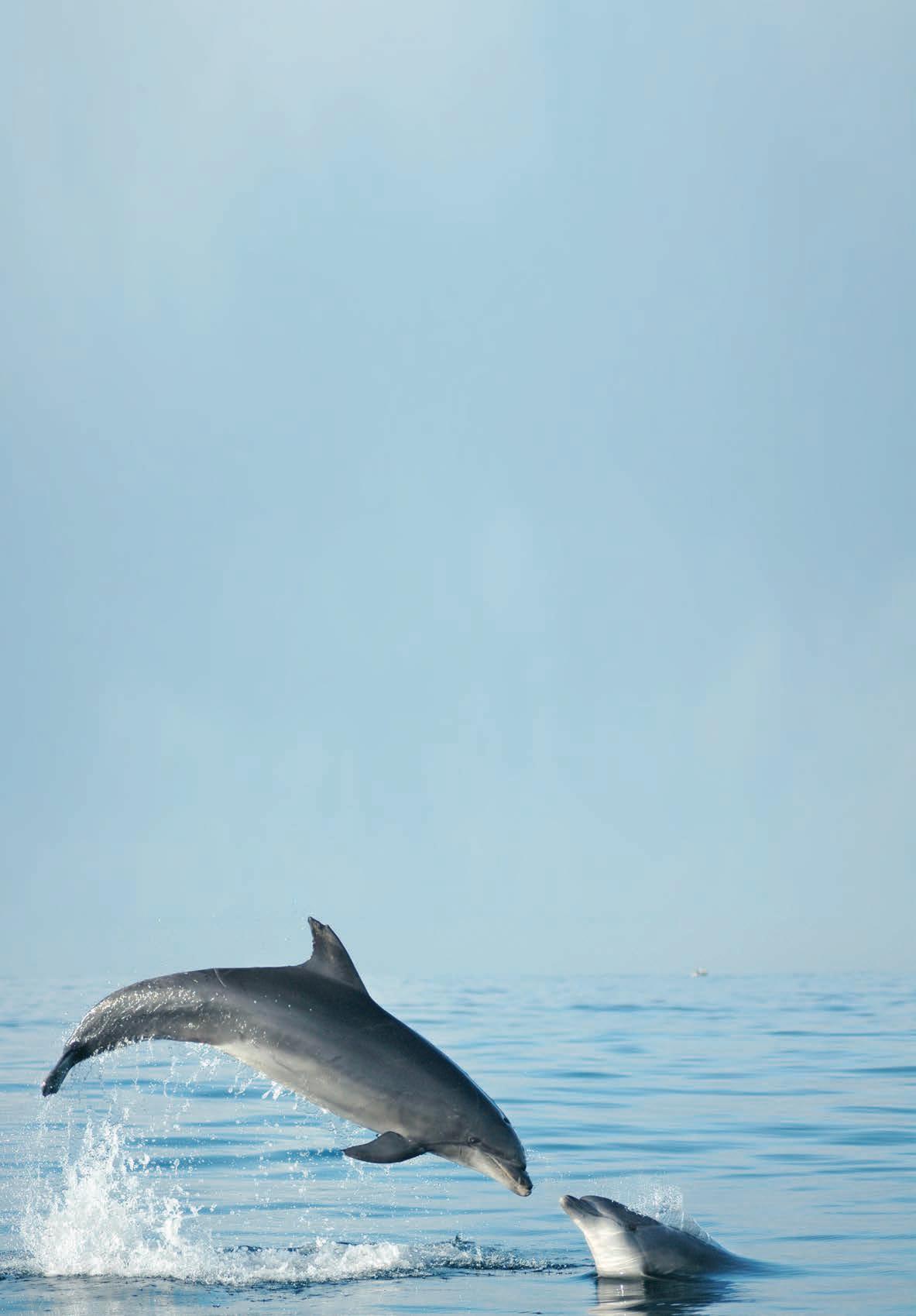
What advice can you give, so we can make small changes and form new habits?
1. It may seem an obvious one but it’s so important. Next time you are enjoying a walk along the coast, please collect any trash along your way. Make it part of your routine and you’ll be making such a difference. 2. We have the power to make conscious consumer choices. There are more ethical products in our stores than ever before. There really are no more excuses. Let’s remove unnecessary single-use plastic from our lives which will prevent it from finding its way into our oceans.
3. When booking a boat trip, please do your research. It’s a privilege to see whales and dolphins in their natural habitat. Choose an ethical operator so you’re confident no harm or distress is caused to the animals. Look out for the AIMM logo which highlights tour companies that offer whale and dolphin-friendly experiences.
What important message would you want to tell our readers?
It’s simple really. Humans can’t survive without a healthy ocean, so it’s vital we protect the delicate balance of biodiversity, in order for marine life to thrive. All our little actions matter, so let’s work together!
Follow AIMM at aimmportugal.org or










